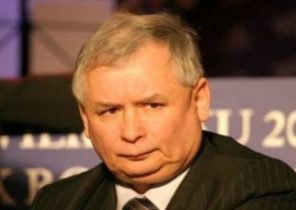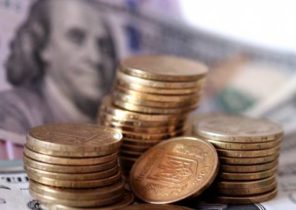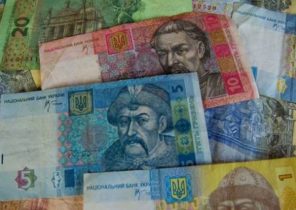
Let’s be honest: no one understands what is happening in the global economy. Recovery after the crash of 2008 is suddenly very slow. If we are on the path to full recovery or mired in “secular stagnation”? Globalization remains or goes away?
Authorities do not know what to do. They put pressure on the usual (and unusual) levers, but nothing happens. Quantitative easing was supposed to bring inflation “on target”. But this did not happen. Budget compression was supposed to restore confidence. But this did not happen. In early December, mark Carney, Governor of the Bank of England, gave a speech called “the Ghost of monetarism”. Of course, monetarism was supposed to save us from the Ghost of keynsianism!
Since no applicable macroeconomic instruments more actually left, it had become commonplace talk about “structural reform.” But the question of what exactly it means, consent either. Meanwhile, loony leaders excite disaffected voters. It seems that the economy has escaped from the hands of those who were supposed to manage, and now she is followed politics.
Until 2008, the experts were sure that they had everything under control. Yes, there was a bubble in the housing market, but it was only a “big bump in the road”, as expressed in the 2005, the current fed chair, Janet Yellen.
Why, then, they missed a storm? That is the question British Queen Elizabeth asked a group of economists in 2008. Most of them are passively folded hands. This was due to “lack the collective imagination of many smart people,” they explained.
But some economists propose a different verdict (and he’s probably guilty), which is associated with problems in the teaching of Economics. Most Economics students are not required to study psychology, philosophy, history and political science. They spoon-serving economic models based on unrealistic assumptions, and their competence they test, solving math equations. They do not teach the use of intellectual tools to see the whole picture.
Here we have to go back to John Stuart Mill, the great nineteenth century economist and philosopher who believed that man cannot be a good economist if he or she just economists. Yes, of course, since the mill specialization of many scientific disciplines has increased dramatically, and in addition, after the collapse of theological science there is no such scientific field that has sought to understand the human condition in General. However, no other field of human knowledge, not to cut yourself off from so much of science in General, and particularly from other social Sciences like Economics.
And it’s not because this is her subject. On the contrary, questions of making money still fill a large part of our lives and thoughts. Economy (how markets work, why they occasionally fail, how to assess the costs of the project) should be interesting to most people. And in fact, she scares everyone except experts fancy formal models.
And it’s not because the economy is an important logical arguments, which allow to check the error in reasoning. The real problem is that economic science is cut off from a common understanding of how everything works (or should work). Economists argue that doing the exact something vaguely. They are convinced that the economy — above all the other scientific disciplines, because the objectivity of money allows it exactly (not approximately) to measure historical forces.
Unsurprisingly, for economists, a beloved symbol of the economy is a machine. The famous American economist Irving Fisher even built a complex hydraulic machine with pumps and levers that allowed him to visually demonstrate the adaptation of the equilibrium of market prices to changes in supply and demand.
If you believe that the economy works like a machine, then you most likely will begin to consider the economic problems as essentially mathematical problems. Effectively the state of the economy the General equilibrium is the solution of the system of simultaneous equations. The deviation from equilibrium is “interference” simple “pothole”. If they are excluded, then the results will be predetermined and optimal. Unfortunately, interference, impeding the smooth operation of the machine, are the people. You can see why economists trained in this way, the temptation for financial models, according to which banks have virtually no risk.
Good economists have always understood that such methods have serious limitations. They used their scientific discipline, as a kind of intellectual hygiene that protects against the most serious errors in reasoning. John Maynard Keynes warned his students that they not try to “do everything right”. In his great book “the General theory of employment, interest and money” there are no formal models. He decided to leave the problem of mathematical formalization others because I want the readers (fellow economists, not the General public) has caught the very essence of what he was saying.
Joseph Schumpeter and Friedrich Hayek, two of the most famous Austrian economist of the last century, also criticized the view of Economics as a car. Schumpeter argued that the capitalist economy evolves through the continuous destruction of the old relations. For Hayek the magic of the market is not that it creates a system of General equilibrium, and that it coordinates incompatible plans of a huge number of people in the world of dispersed knowledge.
Good economists (and many other good people) unites the broad education and views. It gives them access to many, diverse ways of understanding of Economics. The giants of previous generations knew much besides the economy. In Keynes was a mathematics degree, but then he began to study the ancient classics, and actually the economy is studied less than a year, starting then to teach it. The Schumpeter was the degree of candidate of legal Sciences (PhD), and Hayek’s legal and political Sciences, he also studied philosophy, psychology and brain anatomy.
Modern professional economists, on the contrary, do not study almost anything except the economy. They don’t even read classical works in their own discipline. About the history of Economics they learn, if at all, from the data tables. A philosophy that could explain the limitations of economic methods for them a closed book. Mathematics, a demanding and seductive, monopolized their intellectual horizons. Economists is “scientists are idiots” (idiots savants) of our time.







